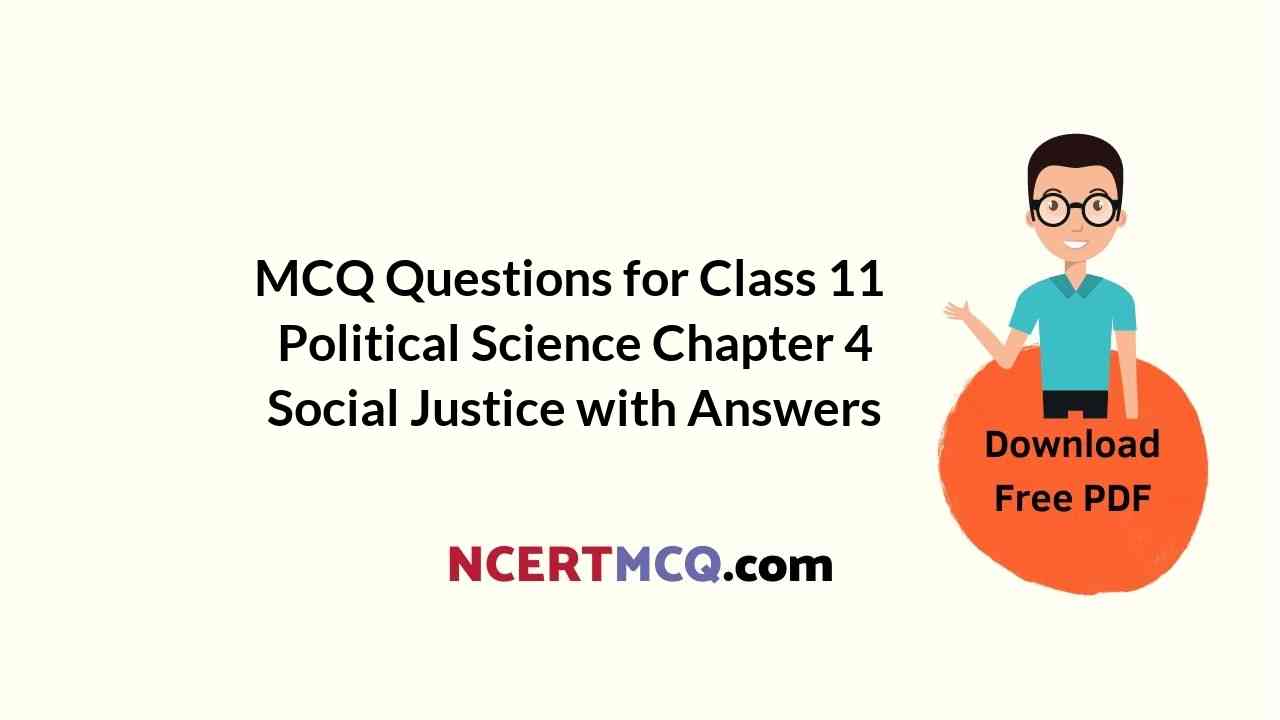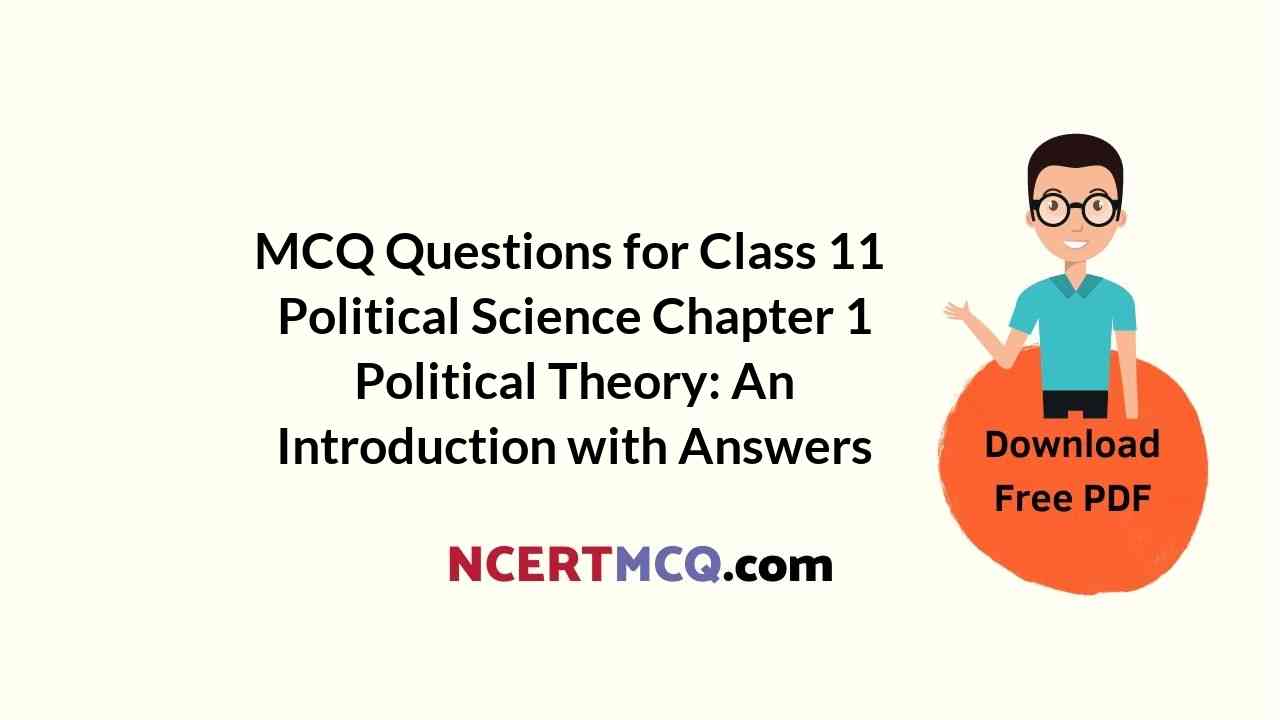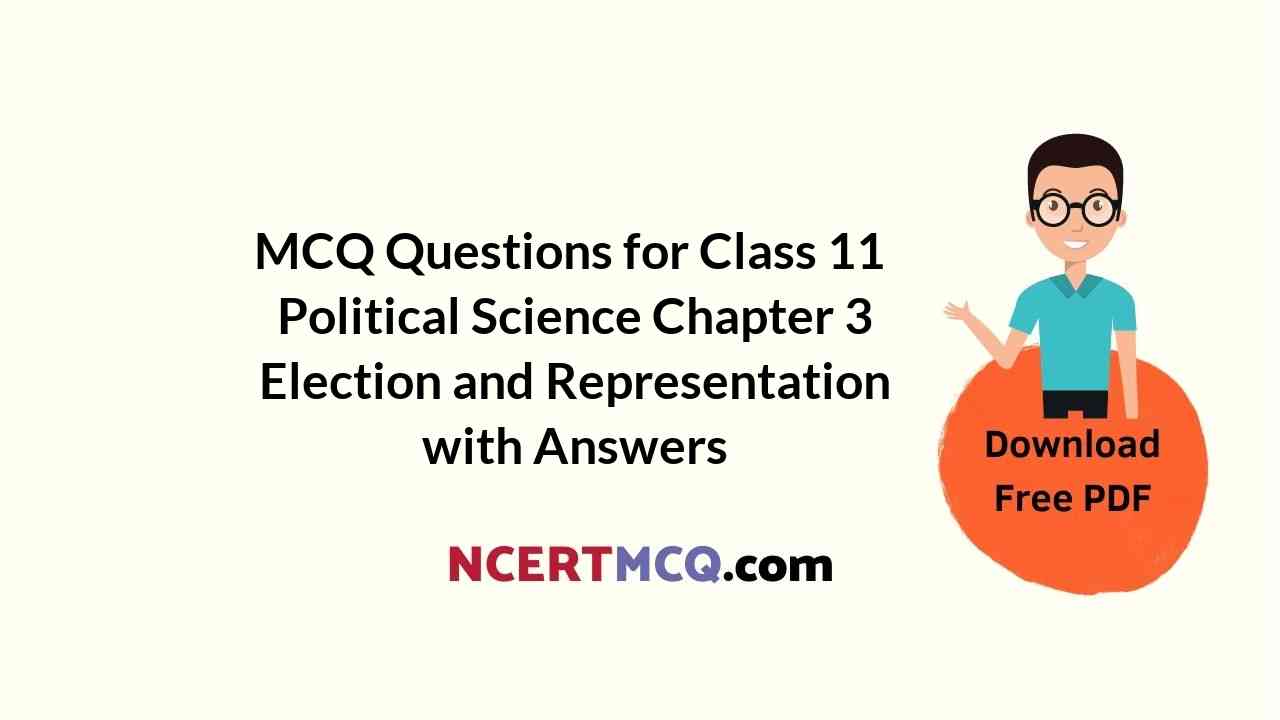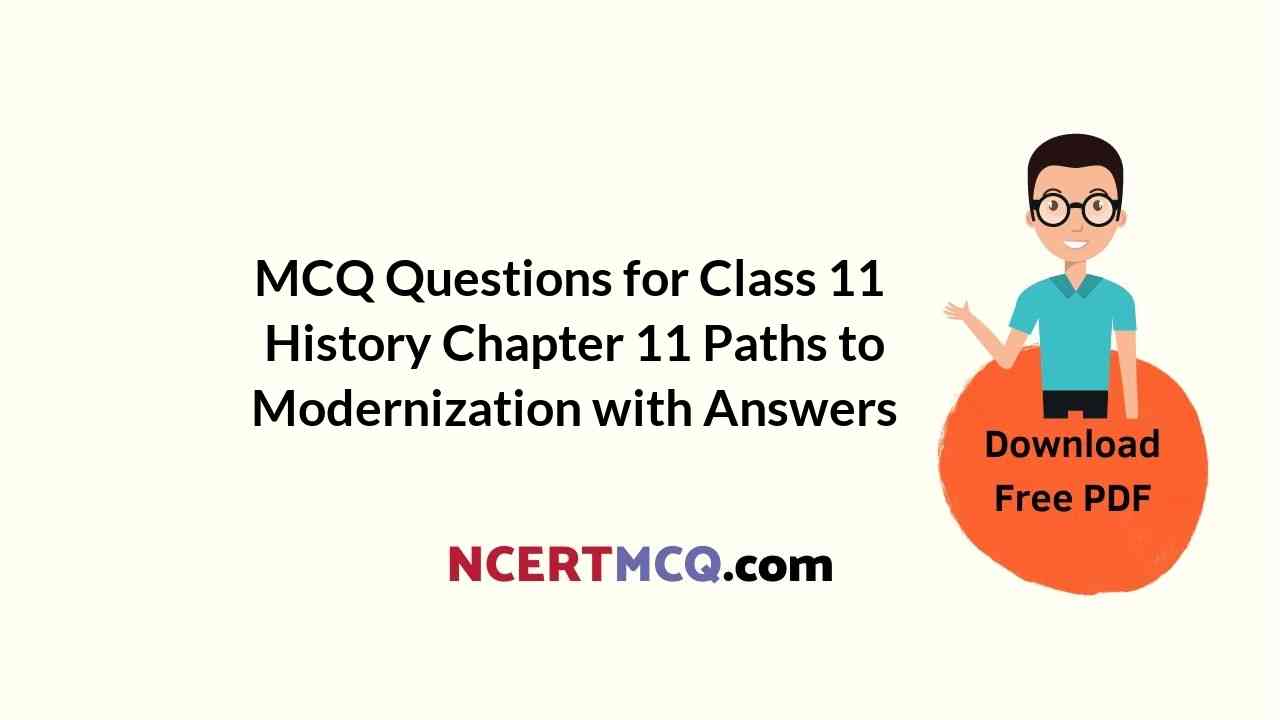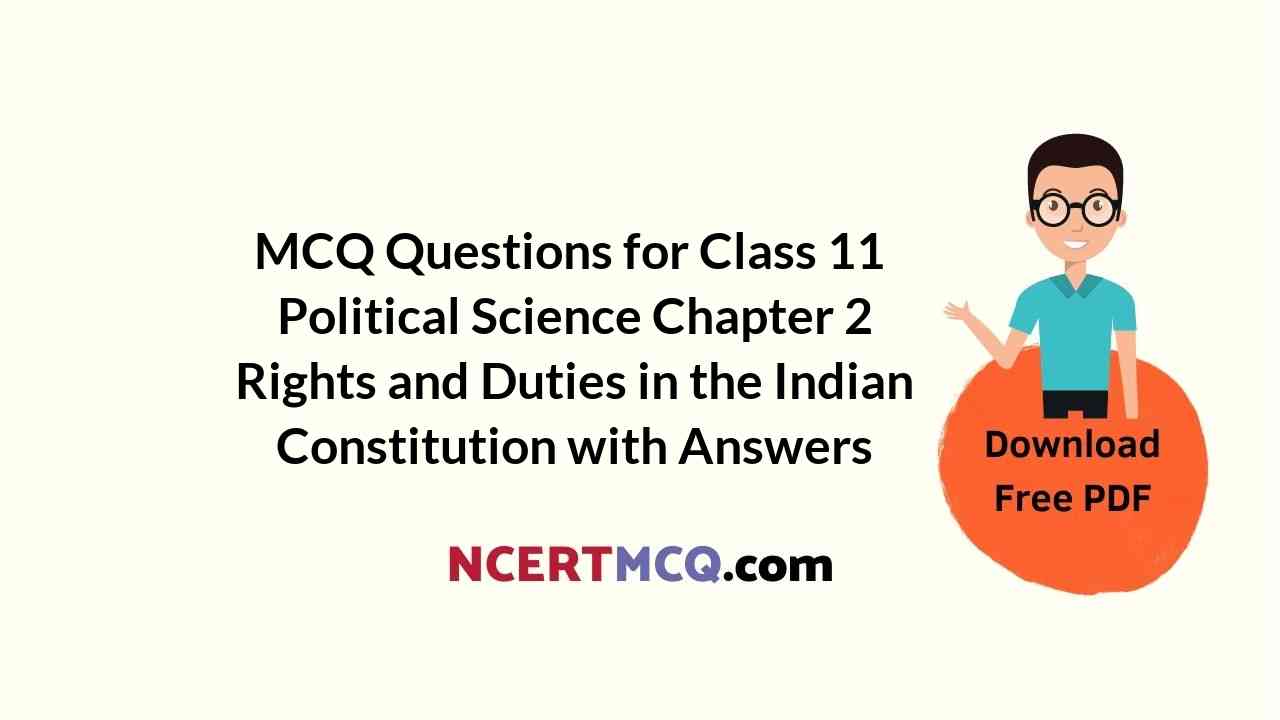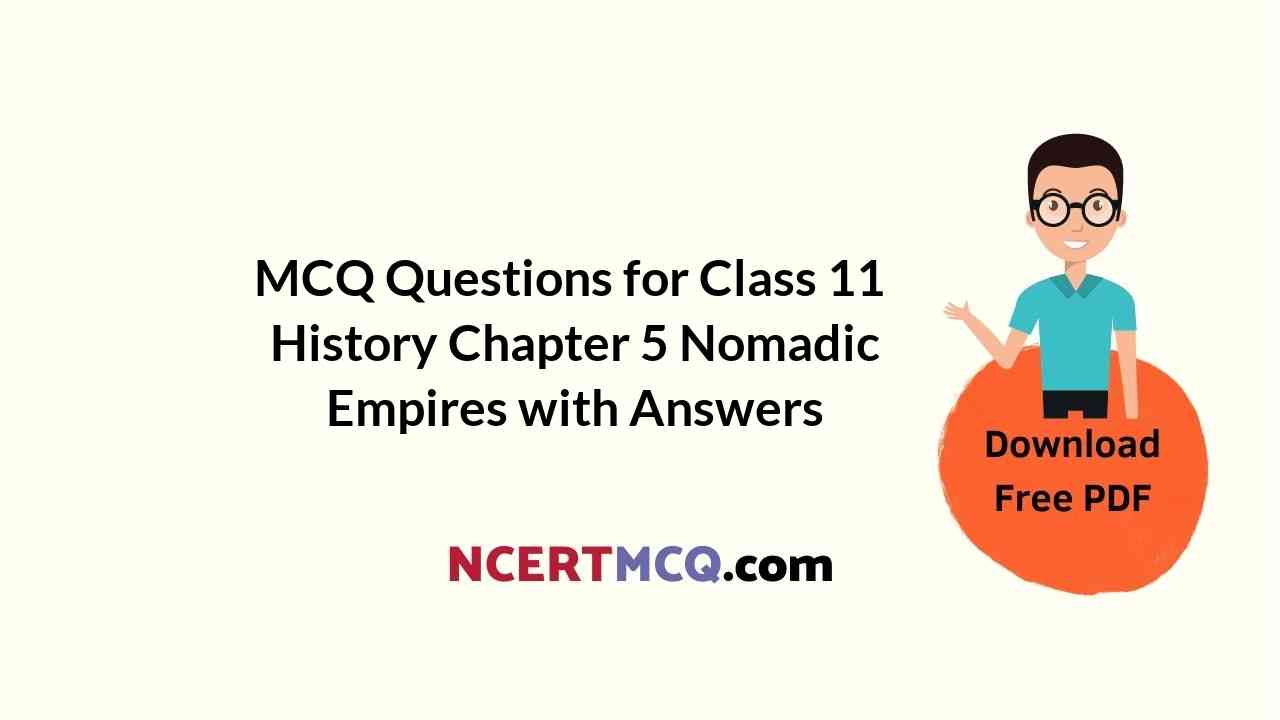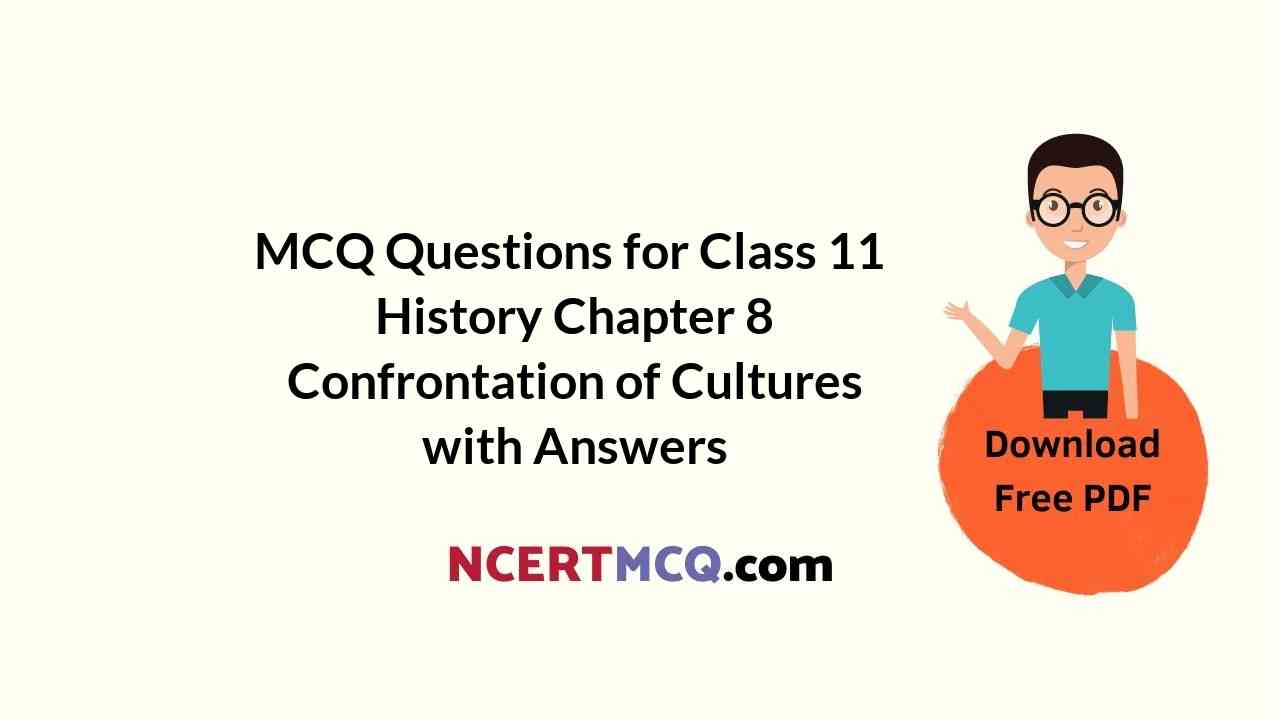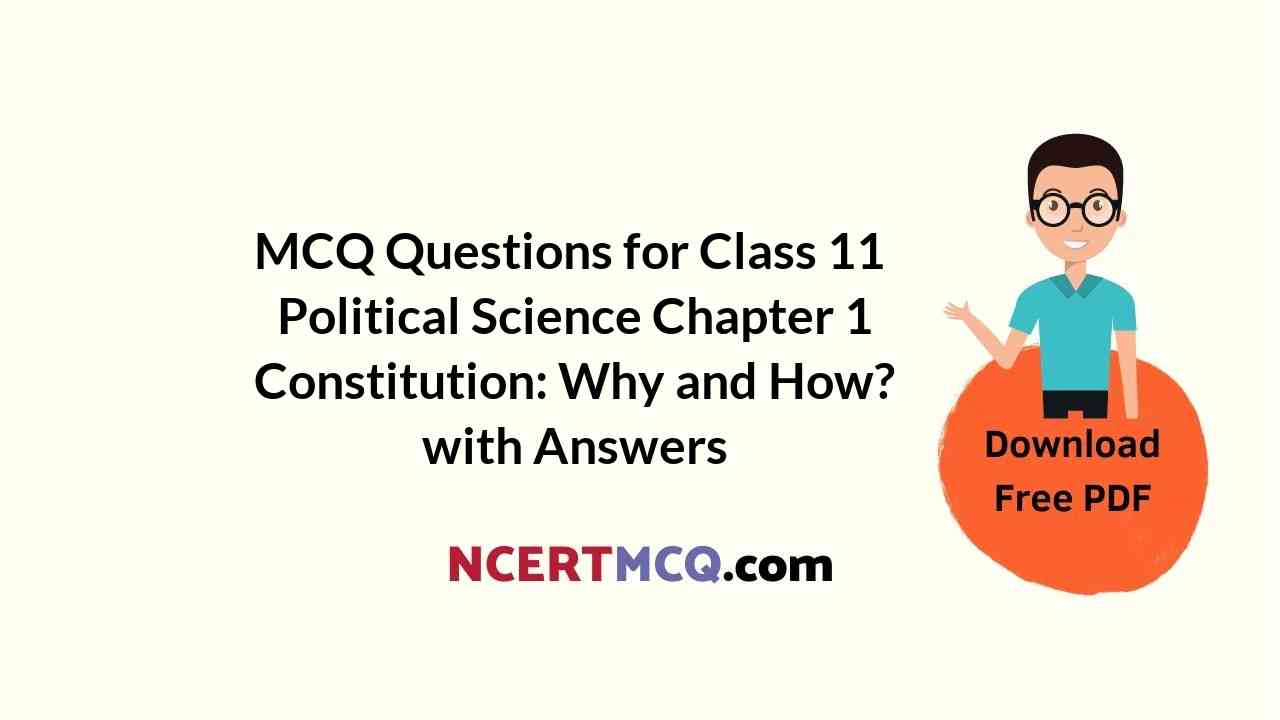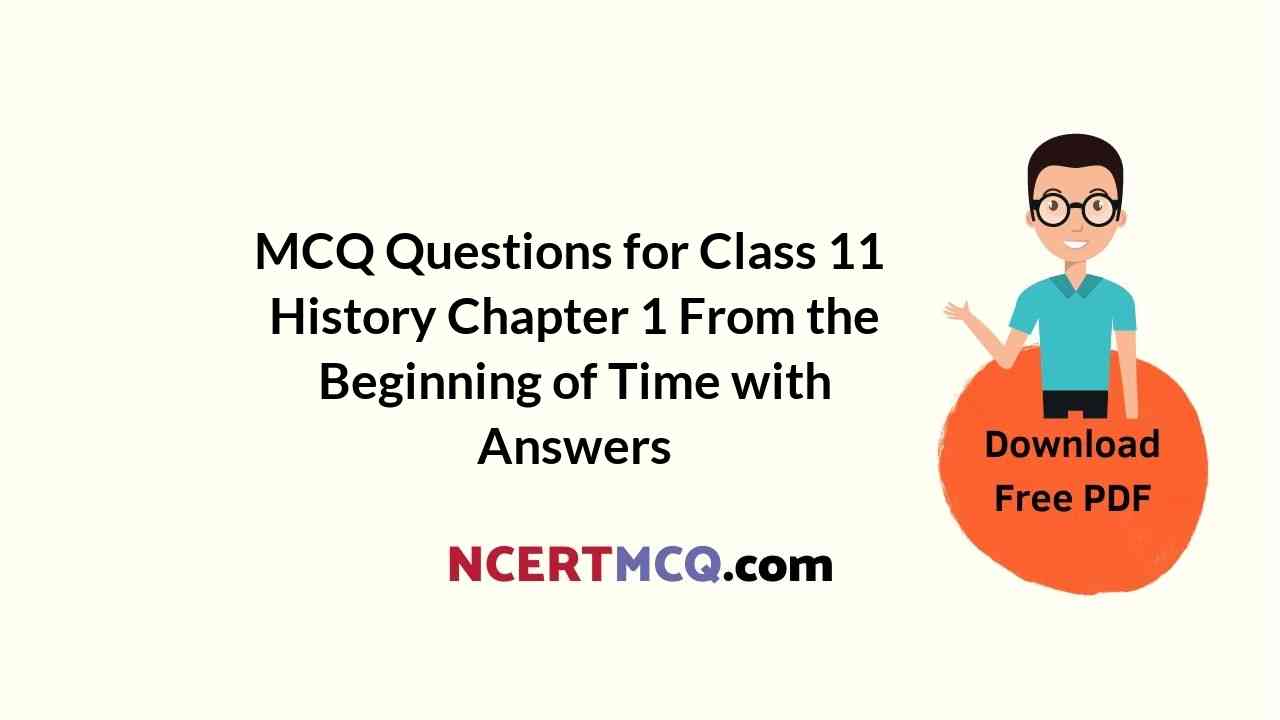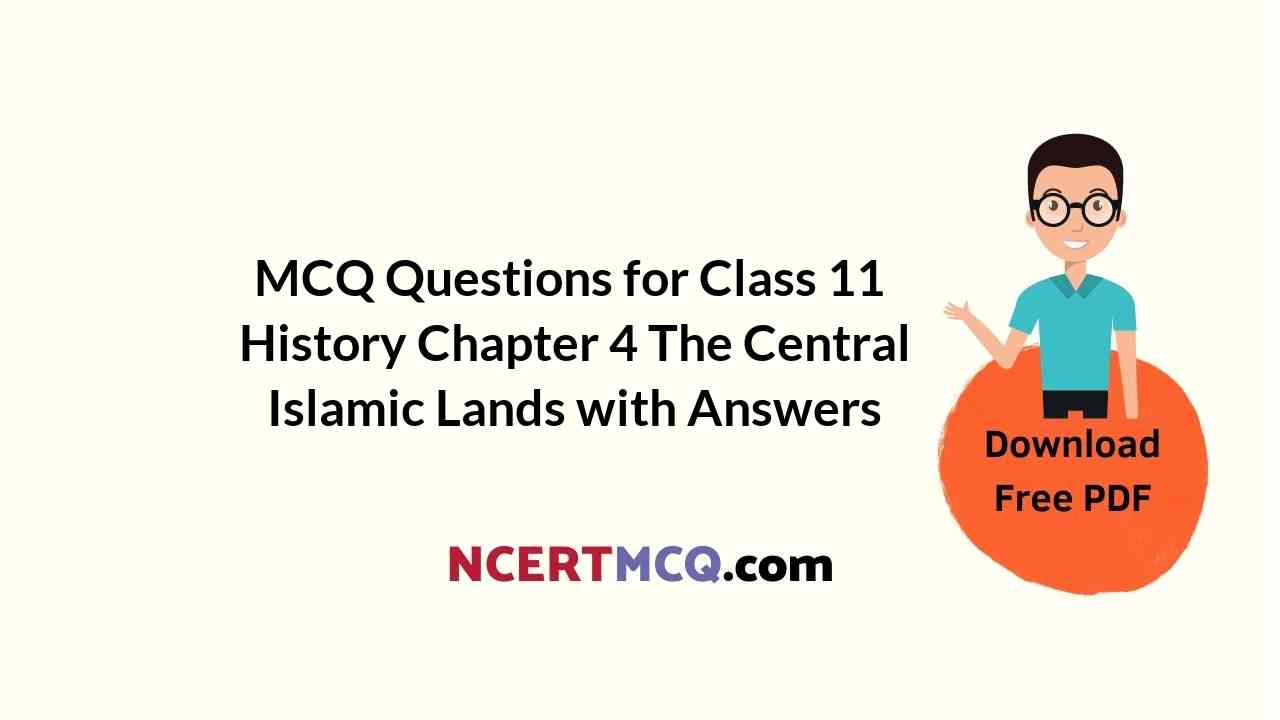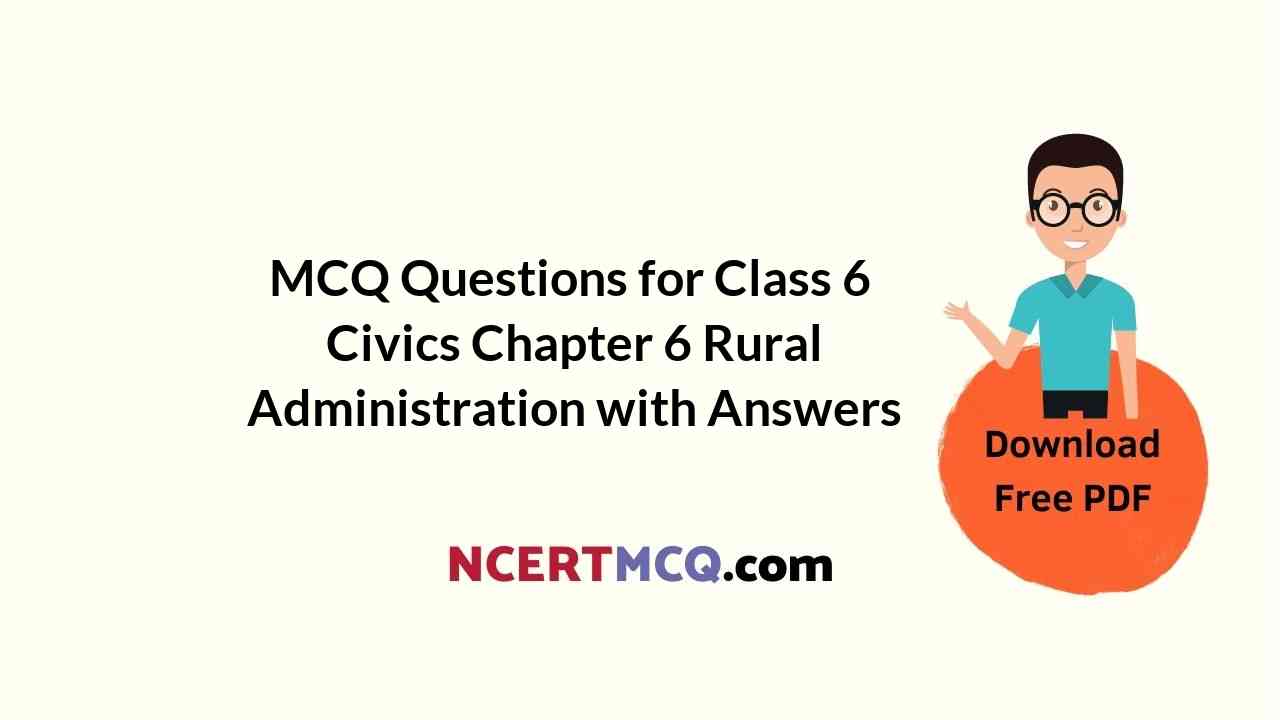Check the below NCERT MCQ Questions for Class 11 Political Science Chapter 4 Social Justice with Answers Pdf free download. MCQ Questions for Class 11 Political Science with Answers were prepared based on the latest exam pattern. We have provided Social Justice Class 11 Political Science MCQs Questions with Answers to help students understand the concept very well.
Class 11 Political Science Chapter 4 Social Justice MCQ With Answers
Political Science Class 11 Chapter 4 MCQs On Social Justice
Social Justice Class 11 MCQ Chapter 4 Question 1.
The term ‘justice’ is derived from the word ‘Jus’ which is a word from:
(a) Latin language
(b) Greek language
(c) English language
(d) French language
Answer
Answer: (a) Latin language
Social Justice MCQ Chapter 4 Class 11 Question 2.
Identify the stage of equality which rejects formal institutions of inequalities.
(a) Liberal Equality
(b) Natural Liberty
(c) Democratic Equality
(d) Economic Equality
Answer
Answer: (b) Natural Liberty
MCQ On Social Justice Class 11 Chapter 4 Question 3.
Justice is essentially a:
(a) Legal concept
(b) Moral concept
(c) Social concept
(d) All of the above
Answer
Answer: (d) All of the above
Social Justice MCQ Class 11 Chapter 4 Question 4.
Which one of the following is not the fundamental postulate of Justice?
(a) Truth
(b) Equality before the law
(c) Freedom
(d) Property
Answer
Answer: (d) Property
Class 11 Political Theory Chapter 4 MCQ Question 5.
Choose the ministry that is entrusted with the welfare, social justice, and empowerment of disadvantaged and marginalized sections of the society in India.
(a) Ministry of welfare
(b) Ministry of social justice and empowerment
(c) Ministry of social defense
(d) Ministry of Education
Answer
Answer: (b) Ministry of social justice and empowerment
MCQ Of Social Justice Class 11 Chapter 4 Question 6.
The free market is a product of
(a) Socialism
(b) Feminism
(c) Neo-liberalism
(d) Patriarchy
Answer
Answer: (c) Neo-liberalism
Class 11 Social Justice MCQ Chapter 4 Question 7.
The famous quote “In a country well governed, poverty is something to be ashamed of. In a country badly governed, wealth is something to be ashamed of.” is given by
(a) J.S.Mill
(b) Plato
(c) Aristotle
(d) Confucius
Answer
Answer: (d) Confucius
Political Science MCQs With Answers Pdf Class 11 Chapter 4 Question 8.
People get the proper justice in:
(a) Dictatorship
(b) Totalitarian state
(c) Monarchy
(d) Democracy
Answer
Answer: (d) Democracy
Class 11 Political Science MCQ Pdf Chapter 4 Question 9.
The state’s failure to provide individuals with basic necessities of life such as; food and housing is an example of
(a) Political Injustice
(b) Economic Injustice
(c) Social discrimination
(d) Gender inequality
Answer
Answer: (b) Economic Injustice
MCQ Questions For Class 11 Political Science Chapter 4 Question 10.
Our political rights and participation are insured only when our
(a) Social needs are being taken care of
(b) Basic needs
(c) Cultural needs
(d) Security needs
Answer
Answer: (b) Basic needs
Class 11 Political Science Chapter 4 MCQ Question Answer Question 11.
The essential principles of modern justice is that
(a) Judges should be part of the executive
(b) Judges should be under the control of the Head of the State
(c) There should be independence of the judiciary
(d) Judges should be under the control of the electorate
Answer
Answer: (c) There should be independence of the judiciary
Class 11 Political Science Chapter 4 MCQ Question 12.
Choose the type of stages of equality advocated by John Rawls.
(a) Two
(b) Three
(c) Four
(d) Five
Answer
Answer: (b) Three
We hope the given NCERT MCQ Questions for Class 11 Political Science Chapter 4 Social Justice with Answers Pdf free download will help you. If you have any queries regarding CBSE Class 11 Political Science Social Justice MCQs Multiple Choice Questions with Answers, drop a comment below and we will get back to you soon.
Class 11 Political Science with Answers MCQ:
